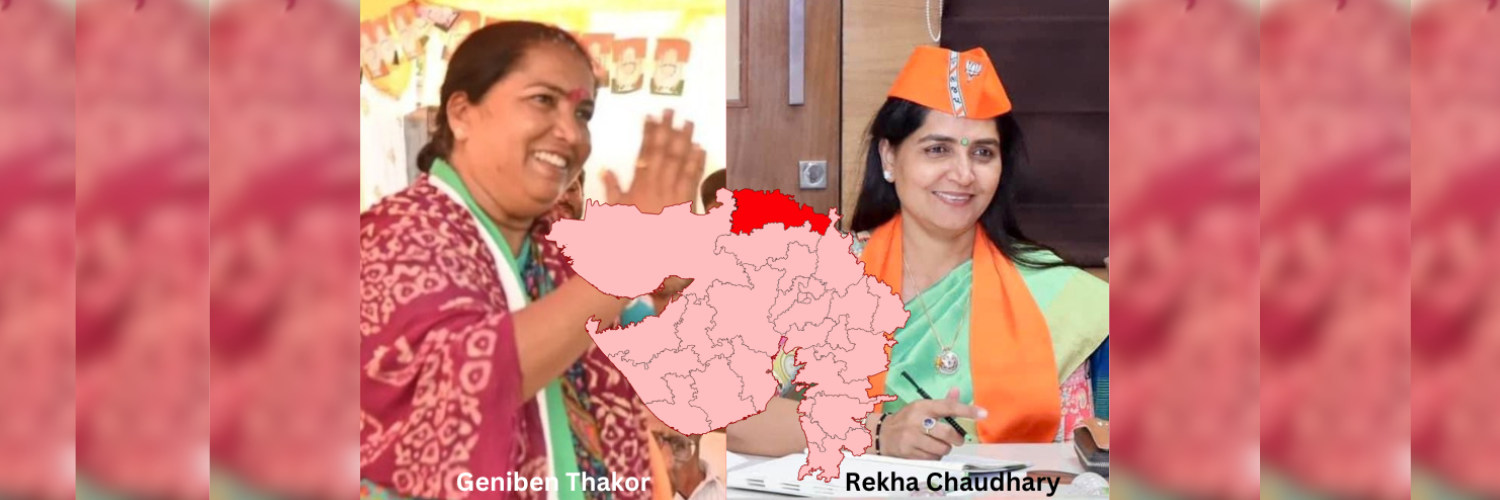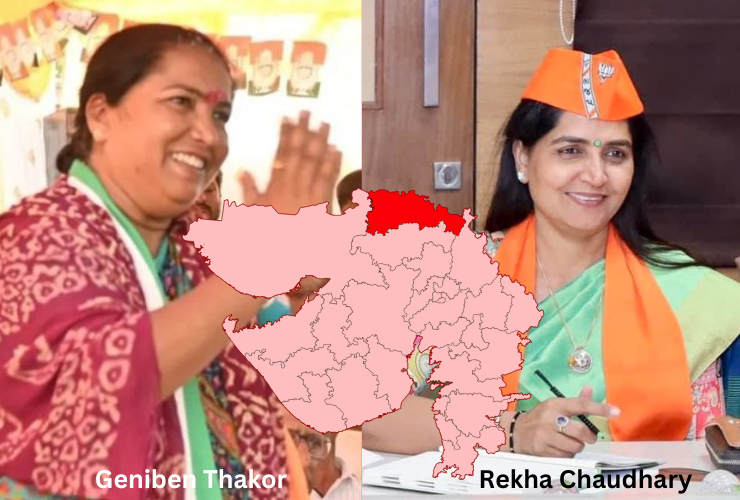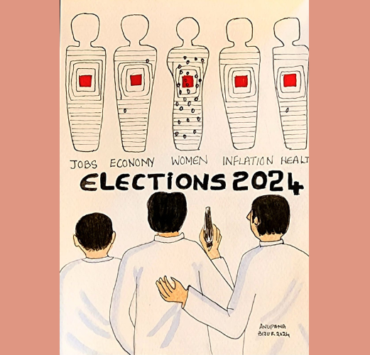
By Rupa Mehta

Despite headlines about progress in Gujarat, women are still not represented in Parliament of state legislature
For Gujarat, “freedom” of women has been a matter of pride, evidenced by people often repeating, “Here, women can go to dance garbha during Navratri even at midnight without fear.” While that may be true, it is little proof of true empowerment and representation as the road to Parliament in the same Gujarat is rough and narrow for women.
Since the first general election in Gujarat in 1962—Gujarat became an independent state on 1 May 1960 when the erstwhile Bombay State was split into Gujarat and Maharashtra—only 29 women have been voted to Parliament from the state. In 2019, Gujarat elected six women MPs, all from the Bhartiya Janata Party (BJP), which was the highest representation of women from the state. In the ongoing election, however, both the BJP and the Congress combined have fielded only eight candidates. The number is just as abysmal when spreads the net wider to other parties: Of the total of 266 candidates, only 19 are women in Gujarat. Each of the main national parties has fielded four candidates each, and only one of the six sitting MPs has got a ticket again. The eight women candidates from the BJP and Congress include one from a tribal group and five OBCs. Women comprise 48.4% of the total voters.
An interesting contest is playing out in Banaskantha Lok Sabha constituency, where two-term MLA Geniben Thakor of the Congress will face BJP’s Rekha Chaudhary, an engineering professor who is making her poll debut. Chaudhary is the granddaughter of the late Galbabhai Chaudhary, founder of the Banas Dairy, which procures milk from more than 4 lakh farmers everyday and is a large employer in the state as part of the Gujarat Cooperative Milk Marketing Federation. Chaudhary, who is from an economically and politically powerful OBC community, has chosen to centre her campaign on the achievements of Prime Minister Narendra Modi, mainly the inauguration of the Ram temple in Ayodhya and the decision to revoke Article 370, which granted special status to Jammu and Kashmir.
Her opponent, on the other hand, is talking about inclusivity, making her campaign slogan, Banas ni bahen Geniben, or Geniben is Banas’ sister. Geniben, a representative of the OBC community, is a Thakore, who constitute four lakh voters in the constituency that has a total of about 19.5 lakh voters. Women count for about 9.4 lakh voters in the seat. Geniben is known for her firebrand personality and commitment to local issues and women’s rights, and has promised to take these issues to Parliament. She has started a unique crowdfunding campaign and has appeared to villagers to contribute to her election campaign. Local newspapers reported that villagers have contributed Rs.50 lakh towards her election expenses, including paying for fuel for her campaign vehicles.
In Gandhinagar, the Congress has fielded a woman against Home Minister Amit Shah, the second time that one of the main contenders is a woman. Sonal Patel is an architect, the All-India Congress Committee secretary and co-manages Mumbai and Western Maharashtra for the party. Gandhinagar has always been a symbolic and significant seat in the fight for democracy. Past candidates for the prestigious seat include Atal Bihari Vajpayee, L.K. Advani, T.N. Seshan, Rajesh Khanna, and Mallika Sarabhai, who faced L.K. Advani in 2009.
Unfortunately, there are many constituencies from which women candidates have never been elected. Gujarat introduced 50% reservation for women in local self-government in 2015, implemented by the state’s first woman chief minister Anandiben Patel. However, the legislative assembly has just 11 women legislators in a total of 182, which is just 6%. The case of Gujarat—and the fact that BJP has not given tickets to five of its six sitting MPs—clearly shows that the political fate of women is decided by men, who still hold the reins of power.
Rupa Mehta is a media professional and women’s rights activist.
Edited by Shalini Umachandran




